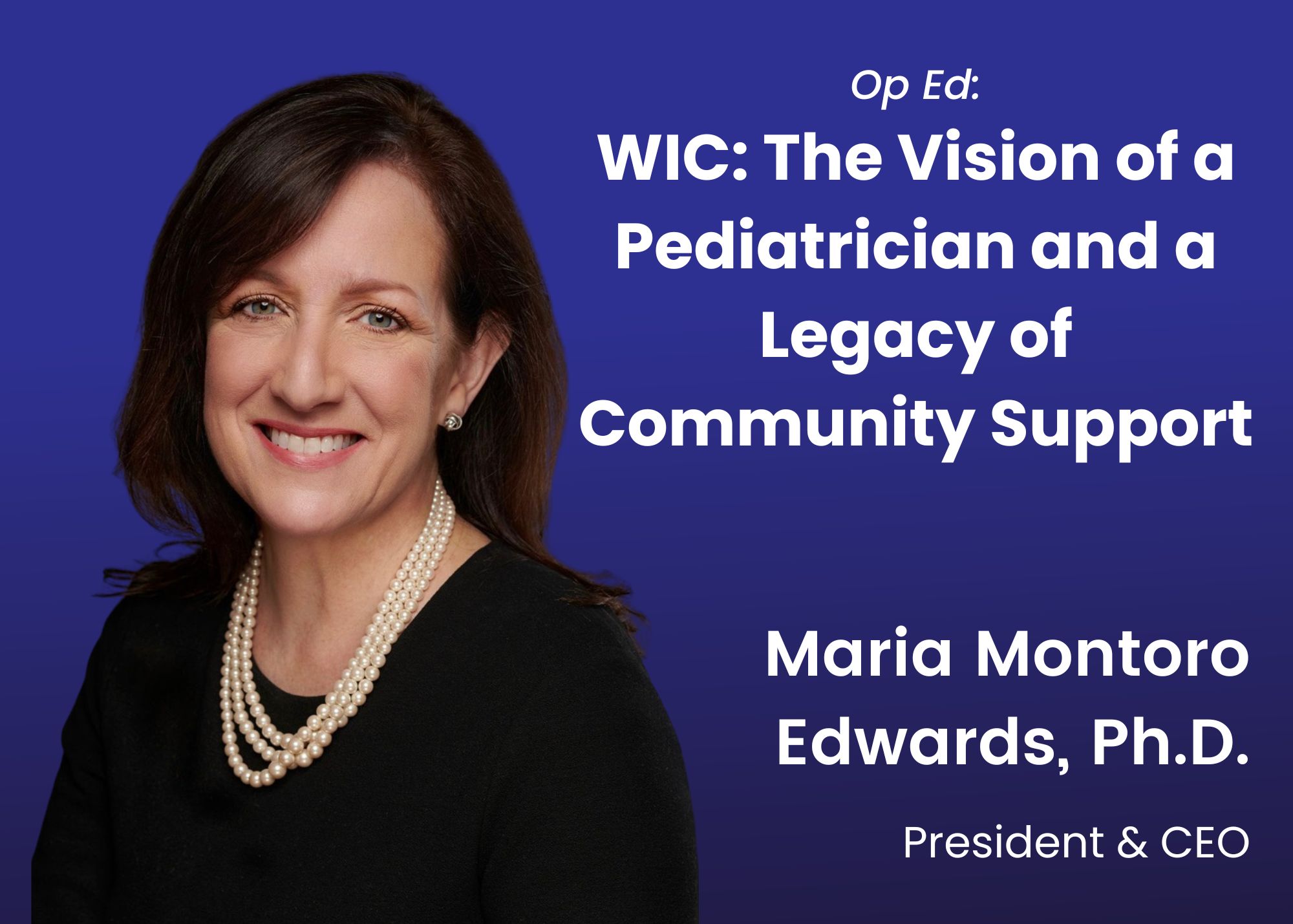Op-Ed: WIC: The Vision of a Pediatrician and a Legacy of Community Support

The Special Supplemental Nutrition Program for Women, Infants, and Children (WIC) traces its roots to the compassionate vision of Dr. David Paige, a pioneering pediatrician in the 1960s and 70s. Witnessing firsthand the devastating impact of poverty and malnutrition on young children, Dr. Paige advocated for a dedicated initiative to address the nutritional needs of America’s most vulnerable families. His efforts culminated in the creation of WIC in 1972, a program designed to support pregnant women, new parents, infants, and young children (under five years of age) with access to nutritious foods, nutrition education, and critical healthcare referrals. Maternal and Family Health Services (MFHS) began providing WIC in northeastern Pennsylvania in 1974. MFHS was one of the first agencies in Pennsylvania to administer a WIC program, and one of the first 100 WIC pilot projects in the United States. MFHS now oversees the largest geographic WIC service network in Pennsylvania, serving more than 50,000 people each month. From its inception, WIC has had bipartisan support and stood as a testament to the power of preventive care and the belief that every child deserves a healthy start in life.
For MFHS clients, the WIC program continues to serve as a crucial lifeline, especially in today’s shifting political landscape. As the national conversation around food security and healthcare evolves, the ongoing support provided through WIC becomes increasingly vital. The program’s comprehensive approach not only addresses immediate nutritional needs but also empowers families to make informed choices that influence lifelong health outcomes. In communities facing economic instability or policy uncertainty, the stability and proven effectiveness of WIC ensure that families can access healthy foods and vital services, regardless of funding priorities.
One of WIC’s greatest strengths lies in its protective factors: regular nutrition screening and early intervention help identify and address potential health concerns before they escalate, reducing risks of low birth weight, anemia, and developmental delays. By providing nutritious foods and ongoing education, WIC mitigates the harmful effects of food insecurity, safeguarding children and parents against poor health outcomes that can impact families for generations.
At the heart of WIC’s success lies its commitment to nutrition education. MFHS clients benefit from personalized guidance that demystifies healthy eating and child development, equipping caregivers with the knowledge to foster thriving, resilient families. This focus on education transforms WIC from a food assistance program into a catalyst for generational change, helping families build habits that sustain health beyond the program itself.
Integral to the WIC experience is the popular farmers’ market nutrition program, which bridges the gap between local agriculture and community health. By providing vouchers for fresh, locally grown produce, the program not only enhances the quality of nutrition available to families but also strengthens regional food systems and supports small-scale farmers. This connection fosters a sense of community ownership and pride, ensuring that WIC’s benefits ripple throughout the local economy and contribute to a more sustainable future.
Breastfeeding support remains another cornerstone of WIC’s holistic approach. Recognizing the profound health benefits of breastfeeding for both parent and child, MFHS offers specialized counseling, peer support groups, and access to lactation consultants. These resources empower families to overcome challenges and make choices that optimize infant health, reinforcing WIC’s role as a partner in every stage of early childhood development.
Perhaps most importantly, WIC serves as a gateway to a robust network of social and healthcare services. MFHS clients benefit from seamless referrals to medical providers, immunization clinics, mental health resources, and other community supports. This integrated model ensures that families receive comprehensive care, reducing barriers and creating a safety net that addresses the complex realities of modern life.
In a time of uncertainty, the foundational principles that guided WIC’s creation remain as relevant as ever. The program’s unwavering dedication to nutrition, education, local food systems, breastfeeding support, and community connections continue to improve lives—one family at a time. For MFHS clients and their communities, WIC endures not simply as a program, but as a promise: that every child and parent will have the chance to thrive, no matter the challenges they face.
– Maria Montoro Edwards, Ph.D.,
President & CEO

